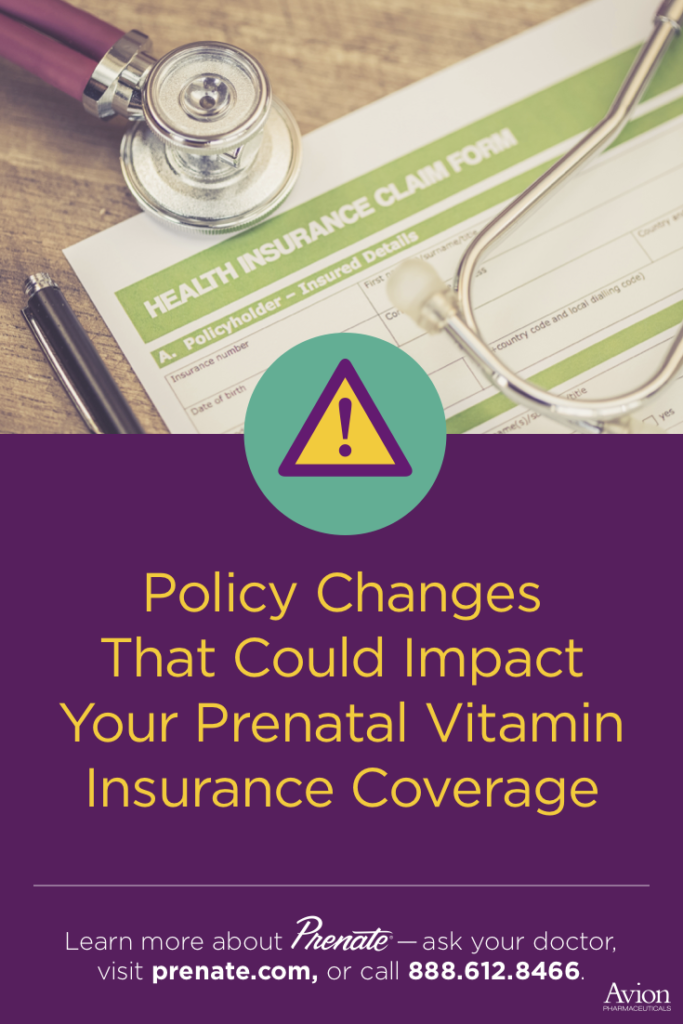Access & Affordability of Prescription Prenatal Vitamins Could be Changing
December 3, 2017
For more than 35 years, health care providers have prescribed Prenate® Vitamin Family products to their patients. Both patients and health care providers have relied on Prenate® and other prescription vitamins as the gold standard of prenatal care because the ingredients within prescription prenatal vitamins may help reduce the risks of birth defects and other negative pregnancy outcomes. With quality assurance and optimal nutrient levels, prescription prenatal vitamins support the health and well-being of mothers and babies. However, a proposed change in the health care system could have a major effect on the affordability and accessibility of prescription prenatal vitamins.
TAKE ACTION
to protect women’s access and accessibility to prescription prenatal vitamins!
Send Email Tweet @FDB_US Send a Letter
Access and Affordability
Prescription prenatal vitamins play a tremendous role in the health of low-income women. Roughly two-thirds (67 percent) of adult women who receive Medicaid are in their re- productive years (ages 19 to 49), representing a critical population in need of prenatal support.1 Because state Medicaid plans cover prescription prenatal vitamins, that cost is significantly diminished, in many cases to no cost at all. This provides women access to this crucial component of prenatal care that can prevent spina bifida and other devastating neural tube birth defects.
Speak Up to Protect the Health of Moms and Babies
First Databank, Inc. is the primary publisher of pharmaceutical information that is used to negotiate insurance reimbursement rates paid to pharmacies and other providers. Currently prescription prenatal supplements are categorized as a prescription product. First Databank is shifting policy to code all prescription prenatal vitamins into a class historically associated with over-the-counter products. This could immediately decrease women’s access to and choice about their prenatal vitamins – products that are universally regarded as a crucial component of prenatal care. Take action below to protect women’s access and accessibility to prescription prenatal vitamins.
to protect women’s access and accessibility to prescription prenatal vitamins!
Send Email Tweet @FDB_US Send a Letter
You Are About To Leave This Website
By clicking continue, this link will take you to a website to which Alora Pharmaceuticals Policies & Terms of Use do not apply. Alora and its subsidiaries do not control the content or accuracy of third-party websites and assume no responsibility for their use.











